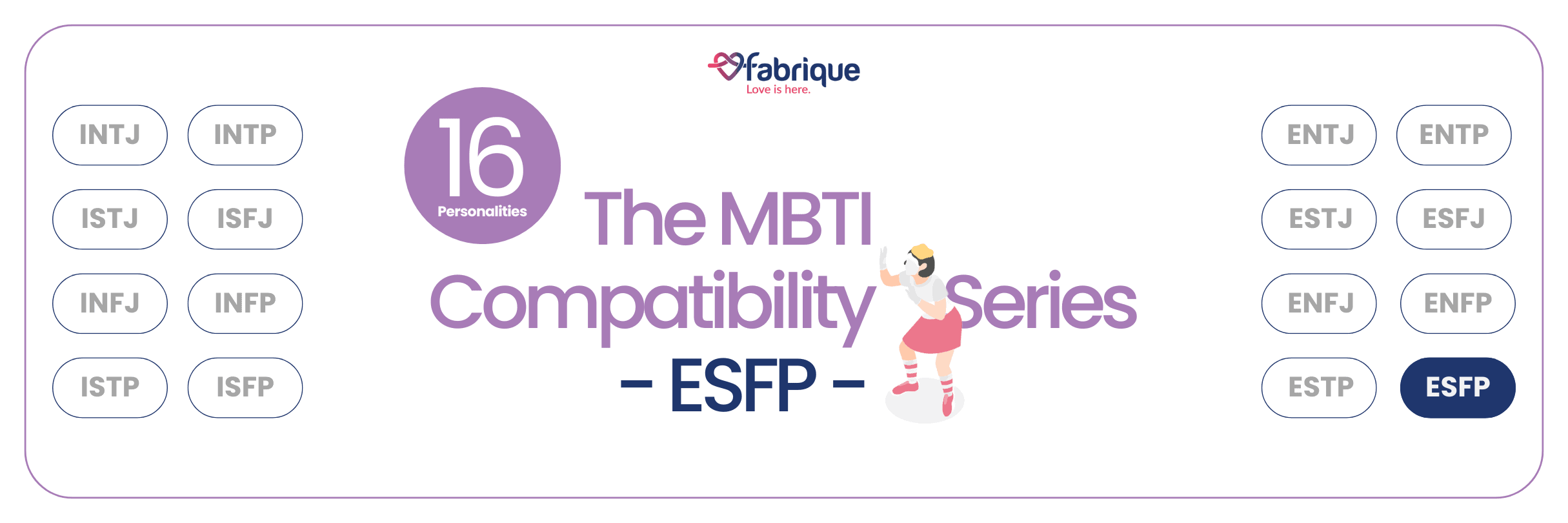
ESFP: The Enthusiastic Partner
ESFPs are known for their vibrant and outgoing personality. They are often the life of the party, bringing energy and excitement wherever they go. In a relationship, an ESFP is likely to be enthusiastic and passionate, always looking for new experiences and ways to have fun with their partner.
Dating an ESFP Partner
Cons:
- Lack of long-term planning
- Can be impulsive and unpredictable
- May struggle with deep emotional conversations
Pros:
- Fun and spontaneous
- Great at living in the moment
- Excellent at keeping the relationship exciting
ESFP partners are known for their outgoing and energetic nature. They thrive in social settings and are always up for trying new things. However, their lack of long-term planning can sometimes cause issues in the relationship. Despite this, their spontaneity and ability to keep things exciting can make for a fun and thrilling partnership.
ESFP Relationship Compatibility with Other MBTI Types

Most Compatible Types:
- ESTP: Both ESFPs and ESTPs are extroverted, spontaneous, and fun-loving individuals who enjoy living in the moment. They share a mutual love for excitement and adventure, making their relationship dynamic and thrilling.
- ISFP: ESFPs and ISFPs are both sensitive and empathetic individuals who value authenticity and emotional connection. They can easily understand and support each other’s feelings, creating a strong bond built on trust and mutual understanding.
- ENFP: ESFPs and ENFPs are both enthusiastic and creative individuals who enjoy exploring new ideas and possibilities. They can inspire each other to pursue their passions and dreams, making their relationship exciting and fulfilling.

Most Incompatible Types:
- INTJ: ESFPs and INTJs have very different approaches to life and relationships. ESFPs are spontaneous and present-focused, while INTJs are strategic and future-oriented. Their contrasting personalities and communication styles can lead to misunderstandings and conflicts in the relationship.
- ISTJ: ESFPs and ISTJs have conflicting preferences when it comes to decision-making and lifestyle choices. ESFPs are spontaneous and flexible, while ISTJs are structured and organized. Their differences in values and priorities can create tension in the relationship.
- INFJ: ESFPs and INFJs have different communication styles and emotional needs. ESFPs are outgoing and action-oriented, while INFJs are introspective and insightful. Their contrasting personalities can make it challenging for them to connect and understand each other on a deeper level.
What makes an ESFP happy in a relationship
- Spontaneous and fun activities
- Emotional connection and affection
- Feeling appreciated and valued
- Opportunities for socializing and meeting new people
What makes an ESFP unhappy in a relationship
- Feeling bored or stagnant
- Lack of emotional support and understanding
- Being criticized or micromanaged
- Feeling trapped or restricted
While MBTI compatibility can provide insight into how two individuals may interact, it is important to remember that it is not the sole determinant of a successful relationship. Mutual understanding, compromise, communication, and love are essential components of any healthy and thriving relationship. Regardless of MBTI type, putting in the effort and work to make the partnership flourish is crucial.
